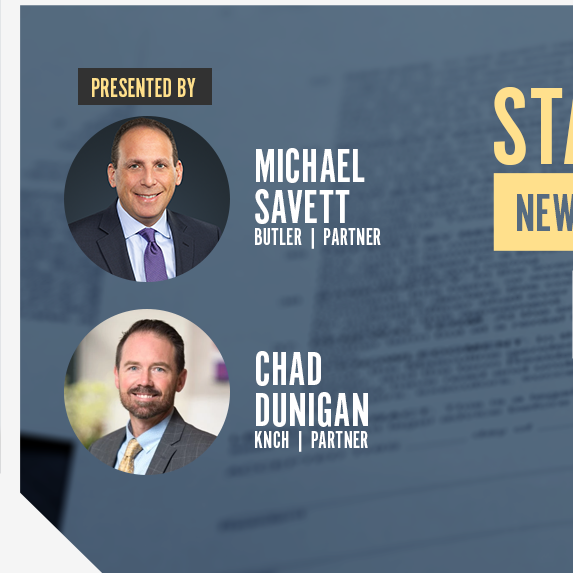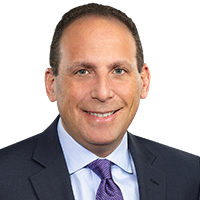
Sexual Assault Is Not A Professional Service
September 23, 2022
Not many cases in Florida analyze Professional Services Exclusions in general liability policies. However, on September 16, 2022, the Eleventh Circuit Court of Appeals released an order providing some clarification about the application of the Exclusion. In Winchester General Hospital, Inc. v. Evanston Insurance Company, Evanston appealed the decision of a federal district court, which held that the general liability coverage of the package liability policy that Evanston issued to the hospital obligated Evanston to defend the hospital in litigation filed by Jane and John Doe (“Does”).[1] The Does sued the hospital for negligence after one of its employees sexually assaulted Jane Doe at the hospital, and alleged the hospital failed to adequately train, investigate, and supervise the staff prior to the sexual assault. The hospital tendered the lawsuit to Evanston for a defense under any applicable coverage part of the package liability policy. Evanston also issued an umbrella policy to the hospital.

The package liability policy contained a professional liability coverage part and a general liability coverage part. Interestingly, Evanston agreed to defend the hospital pursuant to the professional liability coverage part under a reservation of rights, but it declined coverage under the general liability coverage part. Although the opinion states Evanston declined to indemnify the hospital, it is unclear from the opinion whether Evanston declined indemnity for both coverage parts or only the general liability coverage part.
The general liability coverage part contained a Professional Services Exclusion. The Exclusion barred coverage for any claim, “[b]ased upon, arising out of, or in any way involving an act, error or omission in the performance of services of a professional nature rendered or that should have been rendered by the Insured or by any person or organization for whose acts, errors or omissions the Insured is legally responsible[.]” Like almost all general liability policies, the phrase “services of a professional nature” was not defined. However, the phrase “Professional Services” was defined to include, “medical, surgical, dental, x-ray, nursing, mental health services or treatments,” “medical or mental health counseling services, social services or other such treatments,” and other medical related services.[2]
The hospital sued Evanston for declaratory relief contending that the exclusions did not apply, and Evanston removed the case to the federal district court. The magistrate judge held the hospital was entitled to coverage under the general liability coverage part and the umbrella policy, rejecting Evanston’s argument the Professional Services Exclusion barred coverage. The district court judge adopted the recommendation in full and entered a final judgment in favor of the hospital as to the general liability coverage part and umbrella policy. Conversely, the court entered a final judgment in favor of Evanston as to the professional liability coverage part. Evanston appealed the decision. Evanston argued the Professional Services Exclusion barred coverage because the Exclusion was extremely broad and barred coverage for any claim “tenuously related” to the performance of a professional service. In addition, Evanston contended the phrase “services of a professional nature” was different from Professional Services as defined by the policy. Taking this a step further, Evanston argued, “Since Jane Doe was sexually assaulted where she was being treated, Evanston claims that the Does’ allegations at least tenuously relate to the provision of ‘services of a professional nature.’”
The Eleventh Circuit disagreed with Evanston’s arguments. Even though the Court agreed the phrase “in any way involving” in the Exclusion was extremely broad in scope and barred coverage for any claim remotely involving “services of a professional nature,” some relationship between the claim and the professional service must exist for the policy not to be rendered illusory. “Florida’s courts have consistently interpreted the term ‘professional services’ to mean those types of services that require specialized training.” Therefore, the underlying act leading to the claim must have some casual connection to a professional service. To the contrary, the underlying act that led to Doe’s claim was a sexual assault by an employee of a hospital and not a negligent act performed during a professional service. No evidence existed the employee who sexually assaulted Jane Doe was performing a professional service at the time of the incident.
In addition, the Court explained the hospital’s alleged negligence in hiring, training, and supervising its employees, and its failure to adhere to its internal policies and procedures, did not involve “services of a professional nature,” but were administrative and human resource related functions. An administrator, not a provider of medical treatment, performed these services. The Court held the hospital’s “provision of professional services in no way relates to Doe’s alleged sexual assault or [the hospital’s] oversight of its employee’s alleged criminal conduct. The Professional Services Exclusion to the GL Coverage Part of the Policy does not apply here.”
This case demonstrates the application of a Professional Services Exclusion is fact specific. What is clear is the underlying claim must have some causal relationship to the performance of a professional service. Therefore, the claim must allege negligence against an individual or entity for failing to adequately perform a task that requires specialized training and that has a causal relationship to the claim. If a medical professional or other professional performs an intentional tort unrelated to the professional services provided, this Exclusion likely does not bar coverage. Even though the Court held that the exclusion was broad, the Court limited its application.
For any further questions, please contact Blake Hunter.
[1] 2022 WL 4285371 (11th Cir. Sept. 16, 2022).
[2] The policy also contained a Bodily Injury Exclusion.



